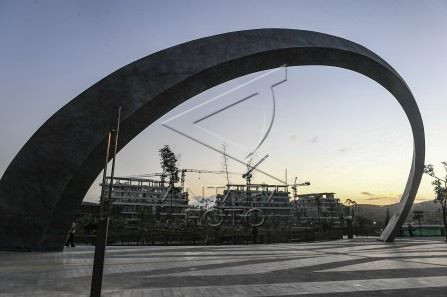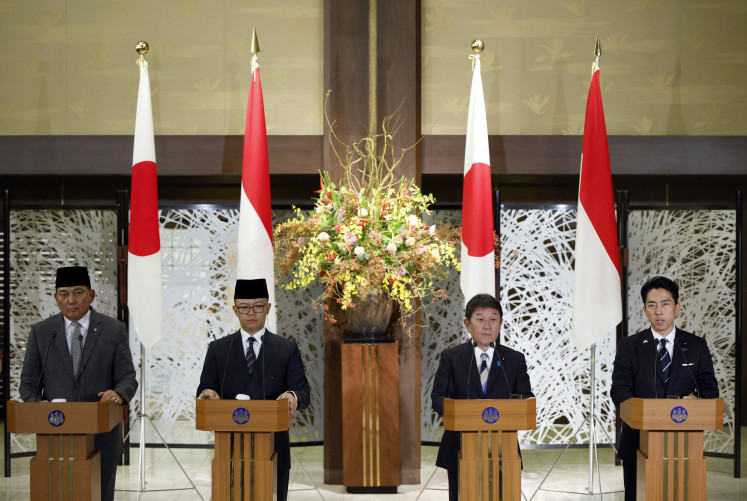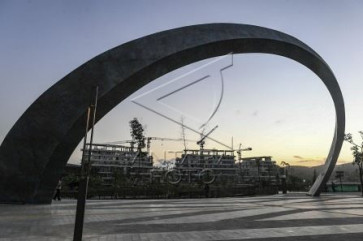Popular Reads
Top Results
Can't find what you're looking for?
View all search resultsPopular Reads
Top Results
Can't find what you're looking for?
View all search resultsThe new capital of Nusantara faces a water crisis
From September to December 2022, around 14,000 hectares of forest were cleared to make way for the new capital city, dams and the Sepaku River intake.
Change text size
Gift Premium Articles
to Anyone
C
lean water is flowing in the new capital city of Nusantara ahead of the celebration of the 79th anniversary of Indonesia's independence on Aug. 17. The future new center of government in Kalimantan will host the Independence Day ceremony, continuing a tradition since the founding of the republic.
PT Adhi Karya, a state-owned enterprise (SOE) contracted to build a water facility in Nusantara, reported on July 19 that the water came from the Sepaku Water Treatment Plant (IPA) in North Penajam Paser regency, East Kalimantan. Its capacity amounts to 300 liters per second.
The source of the drinking water is the Sepaku River intake and it is channeled to the Central Government District (KIPP) through a 200-kilometer network of pipes. This development is a step forward for the capital city, which is built on an area of 2,560 square kilometers. By the end of this year, the government plans to relocate a number of civil servants to Nusantara.
However, the Sepaku IPA is just one small step in managing water in the Nusantara area. The prospective city is built on peat-rich land, and local residents have long had problems with clean water.
On top of that, there is a growing risk of flooding, especially with the ongoing Nusantara construction. On June 24, Sepaku village, which is on the main route to KIPP, was hit by the worst flooding in the last 10 years. There has also been damage to the watershed area.
The clean water problem and the threat of flooding in the Nusantara area are closely tied to how the Riko Manggar River basin (DAS) is managed. That basin is located in Sepaku district, North Penajam Paser regency. There are 33 company concessions operating in the DAS, including mining, oil palm plantations and industrial tree plantations, with a total area of 110,300 hectares. The DAS covers 220,800 ha.
Forest Watch Indonesia (FWI) found that between 2018 and 2021, around 18,000 ha of natural forest in the area was lost. Deforestation picked up when construction of Nusantara got underway. From September to December 2022, around 14,000 ha of forest were cleared to make way for the city, dams and the Sepaku River intake.



















